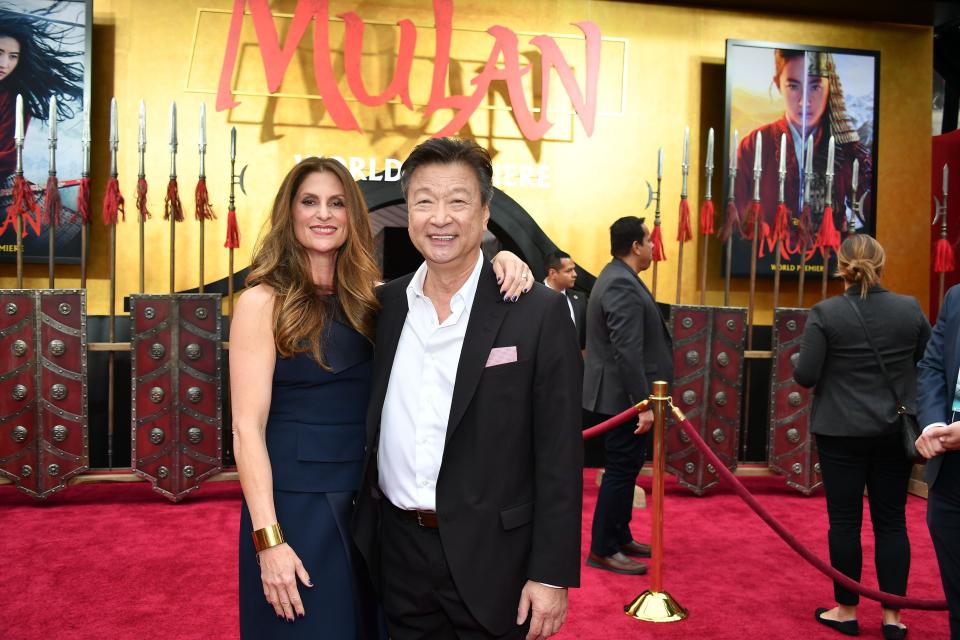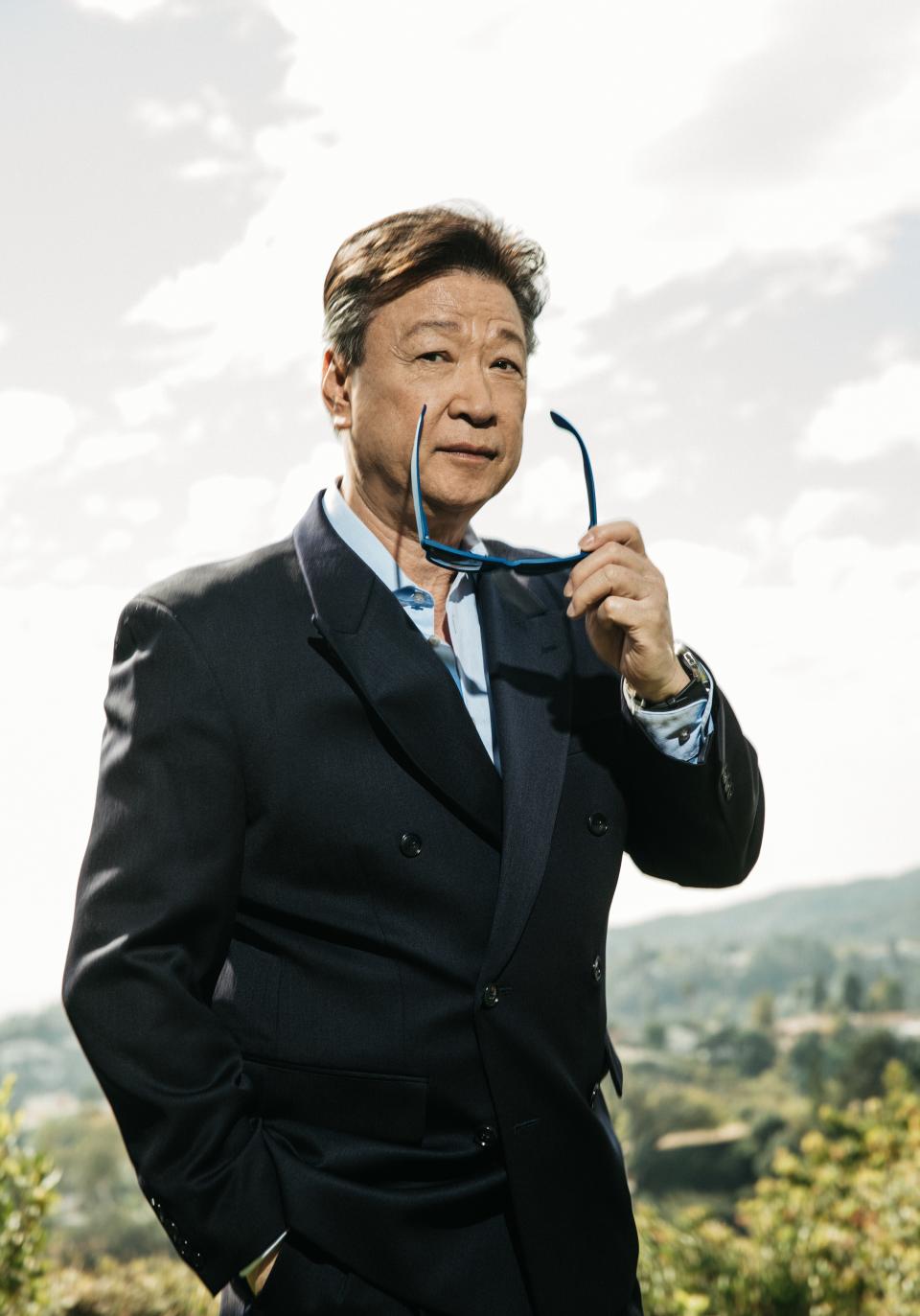'Hollywood's go-to Asian Dad' Tzi Ma adds another daughter to his film family with 'Mulan' — but he had 'trepidations' about Disney's live-action remake
From the #BoycottMulan controversy after Yifei Liu’s comments supporting Hong Kong police during pro-democracy protests, to a film release stall due to COVID-19, Mulan will finally get to meet its audience on Sept. 4 on Disney+.
Famed actor Tzi Ma, who plays Mulan’s father Zhou, says it’s long overdue.
“It’s an inspiring piece, beyond the artistic expectations of it,” Ma told Yahoo Canada. “Hopefully this film will give us an opportunity to also bring people together.”
The film will be available through “Premier Access” on Disney+ on Friday, with a $34.99 fee.
Ma admits that he did have “trepidations” about taking on such an important story, especially after reports that the script for Disney’s live-action remake of Mulan was floating around the internet and it was “awful,” involving a white hero who protects the title character.
“Who knows whether that was real, or doctored up or whatever the situation is, but the cat’s out of the bag, everybody's like ‘Oh my god, this is going to be a disaster,’ ” Ma said.

‘Women warriors’ at the helm
The actor said the moment he had the opportunity to speak to acclaimed filmmaker Niki Caro, who worked on films like The Whale Rider and North Country, all his concerns were put at ease and he believed in her direction for the film.
“That was really the most definitive deciding factor,” he said. “I like the kind of more of the understated take on it and I appreciate the subtlety of it.”
Ma added that Caro was great at working with the children on set, especially young Mulan who is a particularly important character to make the audience feel invested in Mulan’s journey.
“That is at the beginning of the film so audiences really need to fall in love with the baby Mulan first,” he explained. “I mean, otherwise, we’re doomed.”
It’s not just Caro’s presence and care for the film that makes Ma proud of how Mulan was developed with a female-led voice. He credits the “amazing group of women warriors” who led the charge in the production, including director of photography Mandy Walker (Hidden Figures) and assistant director Liz Tan (Spider-Man: Homecoming, The Lord of the Rings).
“I think I have to give this credit to womanhood...because I think there's a sense of community that men are not so in touch with,” Ma said, adding that it was crucial this story about extraordinary women be told by women.

'Hollywood’s go-to Asian dad'
Dubbed “Hollywood’s go-to Asian dad” by publications like Variety, Ma has received extensive praise by his on-screen daughters, including Awkwafina in The Farewell and Canadian actress Sandra Oh in Meditation Park, for his acting talent and supportive nature on set.
“As someone who was pretty new to film, on and off camera Tzi always talked to me, gave me industry and creative advice any time I asked, and has come to be someone I’ll always care for and look up to in my life,” Awkwafina told the Los Angeles Times. “I am very proud to have been one of his daughters.”
Ma is equally as complementary of the women who have played his daughters throughout the years.
“It's definitely an all-star team of daughters, I’ll put that team up against anybody,” he said. “They are strong women, they’re women who are really super talented and multifaceted.”
Ma says he feels a certain amount of responsibility for representing Asian men, primarily Asian fathers on screen, particularly in western films.
“We're pretty much asexual and not very in touch, not very romantic,” he explained. “We don't procreate on the ground, we’re 60 per cent of the world population so we must be doing something to make that happen.”
“So anytime I get a chance to shine a light on fatherhood, I'm happy to do so.”
With Mulan specifically, Ma says he cherishes the role of Zhou, Mulan’s father, for the character’s nurturing nature.
“He says this line, ‘I am blessed with two daughters,’ he didn't say I have two daughters,” Ma explained. “I think just that one line just moves me to no end, I'm so happy with it.”

‘You come in as a collaborator’
Ma made his film debut in 1979’s Cocaine Cowboys and since has been in many notable films like Dante's Peak and Rush Hour, and television series like Veep and 24, just to name a few. Having spent decades in the entertainment industry, Ma believes the roles that he has been able to take on as an Asian-American actor have evolved “leaps and bounds” since he started in the industry, and it’s a “welcome change.”
One reason he thinks this has been able to occur is due to the ease of being able to do research about different people and cultures.
“Back in the day...you had to go to the central library to do any kind of research,” he explained. “Today, everything's at your fingertips and you just have to discern whether this type of information...is valid.”
“It will enhance and build these characters that you want to write, with flesh and blood instead of just a skeleton.”
He also credits movements like #MeToo and #OscarsSoWhite for helping to move the dial on more diversity, inclusion and accurate cultural representation in films.
“All of these things add up because people are beginning to pay attention,” Ma said. “As a member of the BIPOC community, you feel all these things and I'm not sure if the majority culture do, but now I think there's a sensitivity to it.”
He added that there is also a business aspect to the call for inclusion, particularly in a global landscape where a more diverse cast could bring in a larger audience.
“The North American market market is fairly saturated, particularly in the streaming world, like Netflix,” Ma said. “They need to get their subscriptions elsewhere otherwise how are they going to grow their business?”
Although he believes shifts have occurred, Ma also makes a point to take on projects where he can be a “collaborator,” bringing his personal experience and perspective to the table to develop the character in a real and authentic way.
“I'm going to say my piece one way or the other,” he said “I'm nice about it, it’s not like I'm going, ‘OK you know this is terrible I'm going to teach you how to fix it.’ No, that's not how it works.”
“You come in as a collaborator, you come in as a contributor, you come in as a professional. If you’re a good actor, you're going to have to say these are the things that could help me make this character come to life.”

 Yahoo Movies
Yahoo Movies 
